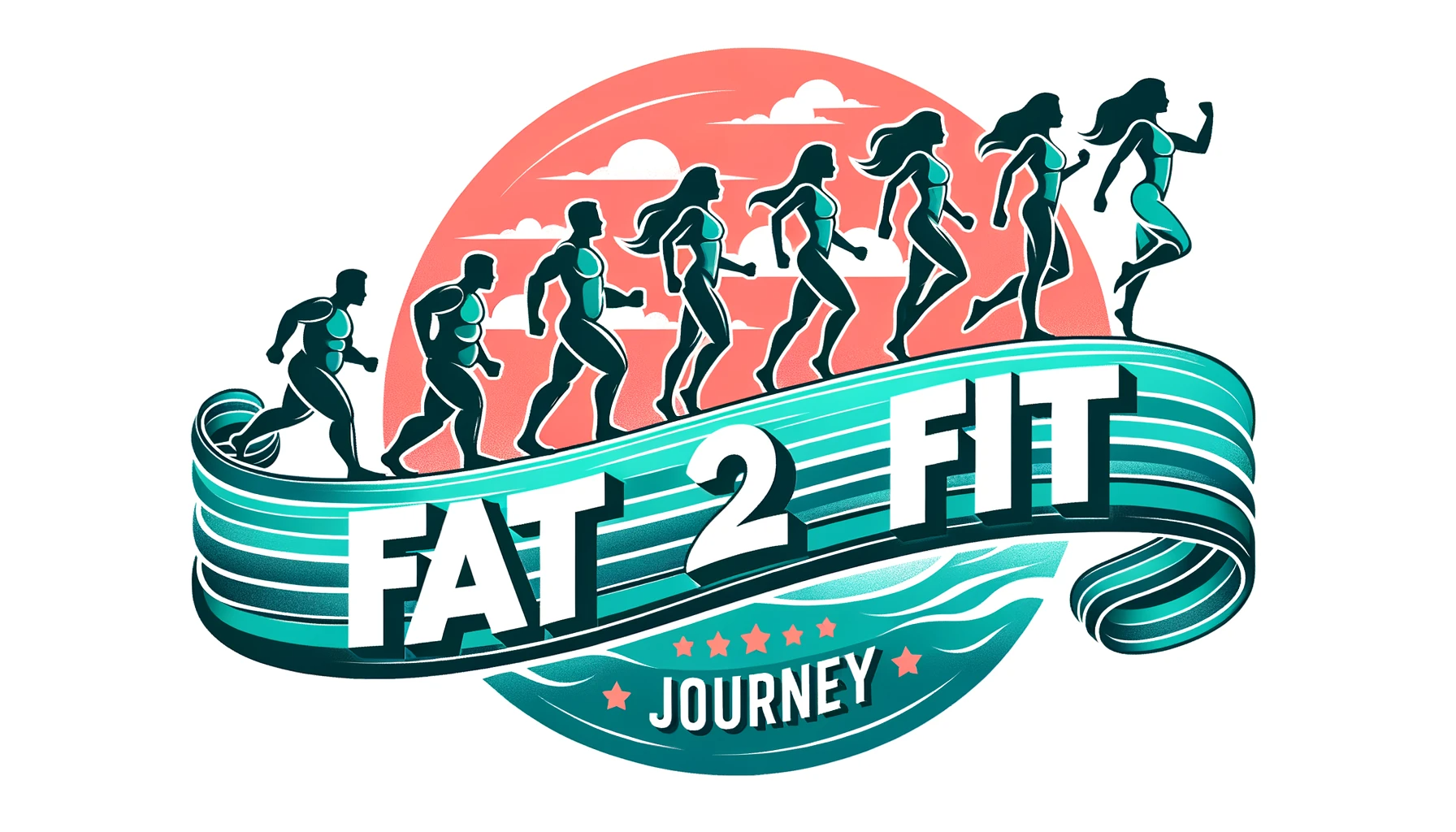Are you ready to unlock your full potential and achieve peak performance? Look no further than “Nutrition Essentials: Fueling Your Body For Peak Performance.” This article explores the vital role that nutrition plays in optimizing your physical and mental capabilities. From providing sustainable energy to enhancing brain function, we will delve into the science behind fueling your body for success. Discover the secrets to reaching new levels of performance and unlocking your true potential through the power of nutrition. So, grab a seat and prepare to embark on a journey toward a healthier, stronger, and more vibrant you.
Table of Contents
The Importance of Nutrition for Peak Performance
Proper nutrition is essential for achieving and maintaining peak performance in sports and other physical activities. Nutrition provides the body with the necessary fuel to perform optimally, recover effectively, and prevent injuries. By fueling your body with the right nutrients, you can enhance your endurance, strength, and overall athletic performance.
Key Nutrients for Optimal Performance
To perform at your best, it is crucial to consume a balanced diet that includes all the necessary macronutrients and micronutrients. Macronutrients such as carbohydrates, proteins, and fats provide the energy required to support physical activity, while micronutrients like vitamins, minerals, and antioxidants play vital roles in muscle function, metabolism, and overall health.
Benefits of Proper Nutrition for Athletes
Proper nutrition provides numerous benefits for athletes. It enhances energy levels, promotes muscle growth and repair, improves focus and concentration, boosts endurance, and aids in recovery after intense training sessions or competitions. Additionally, a well-balanced diet supports immune function and overall well-being, reducing the risk of illness and injury.
Effects of Poor Nutrition on Performance
Poor nutrition can have detrimental effects on athletic performance. Inadequate intake of essential nutrients can lead to decreased energy levels, muscle weakness, impaired recovery, decreased endurance, and increased risk of injuries. Insufficient hydration and electrolyte imbalance can result in fatigue, cramps, and decreased cognitive function. It is important to understand and avoid the negative impact of poor nutrition on performance.
Macronutrients: The Building Blocks of Fuel
Macronutrients are the primary sources of energy for the body and are crucial for optimal athletic performance. Consisting of carbohydrates, proteins, and fats, these nutrients provide the building blocks needed for fueling physical activity.
Carbohydrates as the Primary Energy Source
Carbohydrates are the body’s preferred source of energy during exercise. They are stored in the muscles and liver as glycogen and provide quick and easily accessible fuel. Consuming an adequate amount of carbohydrates before physical activity ensures that your energy levels remain high throughout your workout or competition.
Proteins for Muscle Growth and Repair
Proteins are essential for muscle growth, repair, and maintenance. During intense physical activity, muscle fibers undergo stress and damage. Consuming enough protein helps rebuild and repair these fibers, leading to increased muscle strength and endurance. Additionally, protein aids in the synthesis of enzymes, hormones, and neurotransmitters, supporting overall athletic performance.
Fats for Sustained Energy and Hormone Production
While carbohydrates are the primary source of energy for immediate use, fats play a crucial role in providing sustained energy during prolonged exercise. Fats are the most energy-dense macronutrient and are important for hormone production and absorption of fat-soluble vitamins. Including healthy sources of fats, such as avocados, nuts, and olive oil, in your diet can support overall athletic performance.
Importance of Balancing Macronutrient Intake
It is important to maintain a balanced intake of all macronutrients to support optimal athletic performance. The specific ratio of carbohydrates, proteins, and fats may vary depending on individual goals and activity levels. Consulting with a registered dietitian or Sports Nutritionist can help you determine the ideal macronutrient distribution for your needs.

Micronutrients: Small Nutrients, Big Impact
While macronutrients provide the energy necessary for physical activity, micronutrients are equally important for overall health, muscle function, and metabolism. Micronutrients include vitamins, minerals, and antioxidants.
Vitamins for Overall Health and Performance
Vitamins are essential for various bodily functions, including energy metabolism, immune function, and tissue repair. Certain vitamins, such as vitamin C and vitamin E, act as antioxidants, protecting cells from damage caused by free radicals generated during intense exercise. Eating a variety of fruits, vegetables, whole grains, and lean proteins ensures an adequate intake of vitamins for optimal performance.
Minerals for Muscle Function and Metabolism
Minerals play crucial roles in muscle function, metabolism, and overall health. Calcium, magnesium, and potassium are particularly important for muscle contraction, nerve function, and electrolyte balance. Adequate intake of minerals can help prevent muscle cramps, maintain proper hydration, and support optimal athletic performance.
Antioxidants for Recovery and Immune Support
Intense physical activity can lead to the production of free radicals, which can cause cell damage and increase the risk of inflammation and illness. Antioxidants, found in colorful fruits and vegetables, combat free radicals and promote recovery and immune support. Including antioxidant-rich foods in your diet can help reduce oxidative stress and enhance overall athletic performance.
Hydration and Electrolyte Balance
Proper hydration and electrolyte balance are crucial for optimal athletic performance. Water is essential for regulating body temperature, lubricating joints, and transporting nutrients and oxygen to muscles. Electrolytes, such as sodium, potassium, and magnesium, help maintain fluid balance and ensure proper muscle function. Regularly consuming fluids and electrolytes before, during, and after physical activity helps prevent dehydration and supports optimal performance.
Pre-Workout Nutrition: Powering Up for Success
Proper pre-workout nutrition provides the fuel necessary to power through training sessions and competitions. By consuming the right combination of macronutrients and hydrating adequately, you can optimize your performance and prevent fatigue.
Optimal Timing of Pre-Workout Meals and Snacks
The timing of your pre-workout meal or snack is important to ensure that you have enough energy to sustain your physical activity. Aim to consume a balanced meal containing carbohydrates, proteins, and fats approximately two to three hours before your workout. If time is limited, eat a smaller snack containing easily digestible carbohydrates and a small amount of protein about 30 to 60 minutes before exercise.
Carbohydrate Loading for Endurance Activities
For endurance activities lasting longer than 90 minutes, carbohydrate loading can help maximize glycogen stores and provide sustained energy. Carbohydrate loading involves consuming a high-carbohydrate diet in the days leading up to a long-duration event. This strategy ensures that your muscles are fueled with enough glycogen to sustain you throughout the activity.
Protein Consumption for Muscle Preservation
Consuming protein before a workout can help preserve muscle mass and aid in recovery. Aim to include a source of lean protein, such as chicken, fish, tofu, or Greek yogurt, in your pre-workout meal or snack. Protein provides the necessary amino acids for muscle repair and maintenance, preventing muscle breakdown during intense physical activity.
Hydration Strategies Before Exercise
Proper hydration before exercise is essential for maintaining fluid balance and preventing dehydration. Drink water or a sports beverage containing electrolytes in the hours leading up to your workout or competition. Aim to start your exercise session well-hydrated, as even slight dehydration can negatively impact performance.

Intra-Workout Nutrition: Sustaining Energy and Focus
During longer training sessions or competitions, it is important to fuel your body with the right nutrients to sustain energy levels and maintain focus. Proper intra-workout nutrition can help prevent fatigue and enhance performance.
Importance of Fueling During Longer Training Sessions
As exercise duration increases, the body increasingly relies on stored energy to power through the activity. Consuming carbohydrates during longer training sessions can help maintain blood sugar levels and provide additional fuel when glycogen stores become depleted. Examples of carbohydrate-rich snacks include energy gels, sports drinks, or easily digestible fruits.
Hydration and Electrolyte Replenishment During Exercise
Maintaining hydration and electrolyte balance during exercise is crucial for sustaining energy levels and preventing muscle cramps. Carry a water bottle or sports drink and sip on fluids regularly throughout your training or competition. If the duration is longer than one hour or if you are exercising in a hot environment, consider incorporating electrolyte-rich beverages or salt-containing snacks to replace lost minerals.
Carbohydrate-Rich Snacks for Sustained Performance
Consuming carbohydrate-rich snacks during longer training sessions can help provide sustained energy and prevent fatigue. Opt for easily digestible foods that can be consumed on the go, such as energy bars, bananas, or whole grain crackers. These snacks provide a quick source of energy without causing gastrointestinal discomfort.
Post-Workout Nutrition: Recovery and Repair
The period immediately after exercise is a crucial time for replenishing nutrients, promoting muscle recovery, and facilitating optimal adaptation to training. Proper post-workout nutrition supports muscle repair, glycogen replenishment, and rehydration.
Protein Intake for Muscle Recovery
Consuming protein after exercise is important for muscle recovery and growth. Protein provides the necessary amino acids to repair damaged muscle fibers and stimulate protein synthesis. Aim to consume a meal or snack containing protein within 30 minutes to two hours after exercise to optimize muscle recovery.
Carbohydrate Replenishment for Glycogen Stores
Following intense exercise, glycogen stores become depleted. Consuming carbohydrates after your workout helps replenish these stores and provides the fuel necessary for future training. Aim to consume a mix of carbohydrates and protein in a ratio of approximately 3:1 to maximize glycogen replenishment and muscle recovery.
Importance of Consuming Antioxidants
Intense exercise increases oxidative stress, which can lead to cell damage and inflammation. Consuming foods high in antioxidants, such as berries, dark leafy greens, and nuts, can help reduce oxidative stress and promote recovery. Including antioxidant-rich foods in your post-workout meal or snack can aid in muscle repair and reduce inflammation.
Rehydration and Electrolyte Restoration
Proper rehydration after exercise is essential for restoring fluid balance and supporting overall recovery. Drink water or a sports beverage containing electrolytes to replace fluids lost during physical activity. Including sodium-containing foods, such as broth or a small salty snack, can aid in electrolyte restoration and prevent muscle cramps.

Nutrition for Endurance Athletes
Endurance athletes have increased energy needs due to the longer duration and high intensity of their training sessions or competitions. Fueling properly can help maximize performance and prevent fatigue.
Higher Carbohydrate Needs for Endurance Training
Endurance athletes require higher carbohydrate intake to meet the demands of prolonged exercise. Carbohydrates are the primary fuel source during endurance activities and are crucial for maintaining glycogen stores and sustaining energy levels. Ensure that a significant portion of your daily calorie intake comes from carbohydrates, including whole grains, fruits, and vegetables.
Fueling Strategies During Long-Duration Events
For longer events lasting several hours, it is important to have a fueling strategy in place to ensure sustained energy levels. Consume carbohydrate-rich foods or beverages every 30-60 minutes during the activity to maintain blood sugar levels and prevent glycogen depletion. Experimenting with different sources of carbohydrates, such as energy gels, sports drinks, or energy bars, can help identify what works best for you.
Protein Requirements for Endurance Athletes
While carbohydrates are the primary focus for endurance athletes, protein also plays a crucial role in recovery and muscle repair. Aim to consume an adequate amount of high-quality protein throughout the day to support optimal muscle function and recovery. Lean meats, poultry, fish, eggs, dairy products, legumes, and tofu are all excellent sources of protein.
Importance of Proper Hydration
Proper hydration is essential for endurance athletes, as dehydration can lead to decreased performance and increased risk of heat-related illnesses. Start your training or competition well-hydrated by consuming fluids containing electrolytes prior to the activity. During prolonged exercise, drink fluids regularly to maintain hydration levels. Monitoring urine color can provide a helpful indicator of hydration status – aim for pale yellow.
Nutrition for Strength and Power Athletes
Strength and power athletes have unique nutritional needs to support muscle growth, power output, and recovery. Fueling properly can enhance strength gains, improve performance, and prevent muscle breakdown.
Increased Calorie and Protein Needs for Muscle Growth
Strength and power athletes require higher calorie and protein intakes to support muscle growth, repair, and overall performance. Consumption of high-quality protein, such as lean meats, dairy products, eggs, and plant-based protein sources, is crucial for muscle protein synthesis and repair. Additionally, ensuring adequate calorie intake, in the form of carbohydrates and fats, provides the necessary energy for intense training sessions.
Nutrient Timing for Strength Training
Timing your nutrient intake around your workout sessions is important for maximizing muscle growth and recovery. Consuming a combination of carbohydrates and protein before and after strength training can optimize muscle protein synthesis and glycogen replenishment. Aim to have a nutrient-rich meal or snack containing carbohydrates and protein within 30 minutes to two hours before and after your workout.
Importance of Micronutrients for Recovery
While macronutrients play a significant role in strength and power training, micronutrients are equally important for optimal recovery and performance. Vitamins And Minerals, such as calcium, magnesium, iron, and vitamin D, are crucial for muscle function, bone health, and overall well-being. Ensure that your diet includes a variety of fruits, vegetables, whole grains, lean proteins, and dairy products to meet your micronutrient needs.
Hydration Strategies for Strength and Power Activities
Even though strength and power activities may not involve significant sweating like endurance activities, proper hydration is still crucial for optimal performance and recovery. Hydrate adequately before, during, and after your workout sessions to maintain fluid balance and prevent fatigue. Drinking fluids containing electrolytes, especially in hot environments, can help replenish lost minerals and prevent muscle cramps.
Nutrition for Team Sports
Team sports require coordination, endurance, and strength. Balancing individual needs within team fueling plans is essential to optimize performance and support recovery.
Balancing Individual Needs Within Team Fueling Plans
In team sports, each athlete may have unique nutritional needs based on their position, body composition, and playing style. While it is important to develop team fueling plans, it is equally crucial to consider individual needs and preferences. Consulting with a registered dietitian or sports nutritionist can help tailor nutrition plans to meet the specific requirements of each athlete.
Carbohydrate Loading for Team Sport Competitions
In team sport competitions lasting several hours, like soccer or basketball tournaments, carbohydrate loading can help maximize muscle glycogen stores and provide sustained energy. Athletes can increase carbohydrate intake in the days leading up to the competition to optimize fuel availability and delay fatigue. Consuming carbohydrate-rich foods such as whole grains, pasta, rice, and fruits can help athletes meet their increased energy demands.
Recovery Nutrition for Consecutive Game Days
During multi-day tournaments or consecutive game days, proper recovery nutrition is crucial to maintain performance throughout the competition. Consuming a post-game meal or snack containing carbohydrates, proteins, and fluids within 30 minutes to two hours after each game can help replenish glycogen stores, promote muscle repair, and support recovery. Adequate hydration and electrolyte balance are also essential during these periods.
Importance of Proper Hydration During Matches
Proper hydration is vital for optimal performance during team sport matches. Athletes should start the game well-hydrated by consuming fluids containing electrolytes in the hours leading up to the competition. During breaks and halftime, drinking fluids regularly helps maintain hydration levels and prevent dehydration. Coaches and support staff can provide hydration strategies and encourage athletes to consume fluids throughout the game.
Special Considerations: Nutrition and Injury Prevention
In addition to fueling athletic performance, proper nutrition plays a crucial role in preventing injuries and maintaining overall health. By focusing on maintaining a healthy body composition, consuming anti-inflammatory foods, and obtaining key nutrients, athletes can reduce the risk of overuse injuries and support bone strength.
Role of Nutrition in Avoiding Overuse Injuries
Overuse injuries can occur when the body is not adequately fueled or when muscles, tendons, or bones are subjected to repetitive stress without proper recovery. Proper nutrition supports tissue repair, provides necessary nutrients for healing, and helps prevent inflammation. Consuming a balanced diet that includes carbohydrates, proteins, fats, vitamins, minerals, and antioxidants can help reduce the risk of overuse injuries.
Importance of Maintaining Healthy Body Composition
Maintaining a healthy body composition is essential for reducing the risk of injuries and optimizing athletic performance. Excess body fat can lead to increased stress on joints, decreased agility, and slower recovery times. Consuming a well-balanced diet, engaging in regular physical activity, and working with a registered dietitian or sports nutritionist can help athletes achieve and maintain a healthy body composition.
Anti-Inflammatory Foods for Injury Prevention
Inflammation is a natural response to exercise and can aid in muscle repair and adaptation. However, chronic inflammation can impede recovery and increase the risk of injuries. Consuming anti-inflammatory foods, such as fatty fish, leafy greens, berries, and nuts, can help reduce inflammation and support optimal recovery. Including these foods in your diet can promote overall health and reduce the risk of injuries.
Key Nutrients for Bone Strength and Resilience
Athletes, particularly those in high-impact sports, are at a higher risk of bone-related injuries. Adequate intake of key nutrients, such as calcium, vitamin D, magnesium, and phosphorus, is essential for bone strength and resilience. Including dairy products, leafy greens, fortified foods, and getting adequate sun exposure can help ensure sufficient intake of these nutrients and support bone health.
In conclusion, nutrition is a vital component of peak athletic performance. By consuming the right balance of macronutrients and micronutrients, athletes can optimize their energy levels, enhance muscle growth and repair, and promote overall health. Pre-workout, intra-workout, and post-workout nutrition strategies can help athletes fuel properly, sustain energy, and recover effectively. Additionally, each category of athletes, whether endurance, strength and power, or team sports athletes, has specific nutritional needs that should be met to achieve optimal performance. By considering these specific needs and incorporating proper hydration, athletes can take their performance to the next level while reducing the risk of injuries and supporting long-term health.
